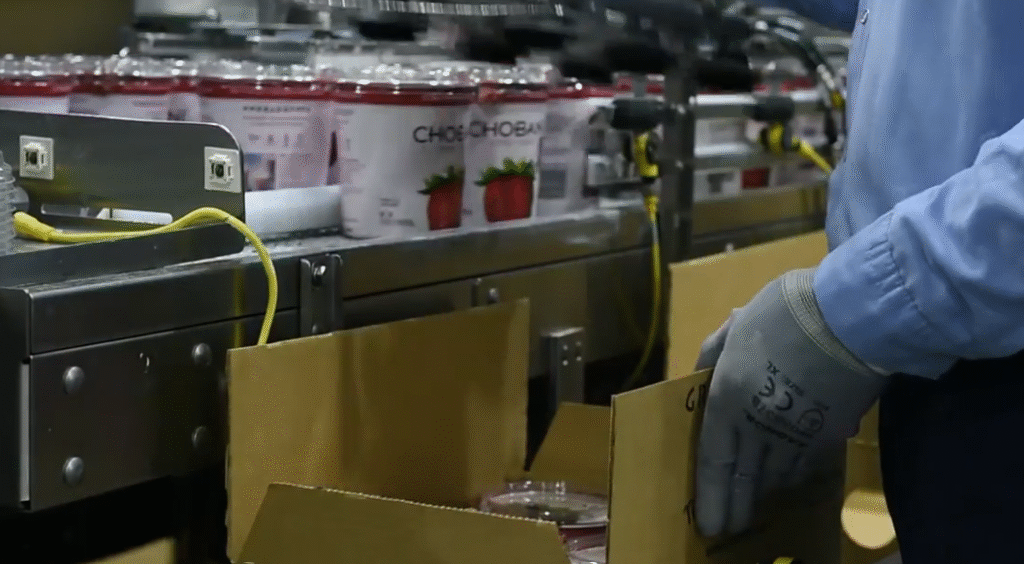Chobani has had to deal with a string of lawsuits in recent months, all of which have revealed the ways in which food branding, health claims, and packaging aesthetics interact with the general public. Although the business established its reputation by promising to use “only natural ingredients,” court records and laboratory testing are presenting a far more nuanced picture.
By May 2025, an Illinois judge had dismissed a widely reported class action lawsuit contesting Chobani’s “Zero Sugar” label. The plaintiffs claimed that because the yogurt contains allulose, a naturally occurring sugar, it misled them. The problem persisted even after Judge John J. Tharp Jr. declared that the labeling adhered to FDA regulations. Trust had already been severely damaged for many customers, especially those with dietary restrictions or medical conditions.
Another California case that attracted national attention surfaced shortly before that decision. Amy Wysocki filed a lawsuit on April 16, 2025, alleging that Chobani’s products contain phthalates, which are harmful plasticizers. This includes substances that have been linked to hormone disruption and, in certain situations, possible carcinogenic effects, such as DEHP, DEP, and DEHT. Although phthalates are frequently used to soften plastic, Wysocki’s legal team contends that it is especially concerning that they are present in a product marketed as “natural” yogurt.
Key Information on Chobani Yogurt Lawsuit & Company Profile
| Category | Details |
|---|---|
| Company Name | Chobani LLC |
| Headquarters | Norwich, New York, USA |
| Founded | 2005 |
| Founder | Hamdi Ulukaya |
| Product Focus | Greek Yogurt, Dairy Products, Non-Dairy Alternatives, Coffee Beverages |
| Lawsuit Dates | April 16, 2025 (Toxic chemicals case), May 29, 2025 (Zero Sugar case) |
| Major Allegations | Mislabeling, Toxic Phthalates, Trademark Infringement |
| Court Involvement | U.S. District Court (California and Illinois), Southern District of NY |
| Key Laws Referenced | FDA Labeling Regulations, Consumer Protection Laws |
| External Reference | National Law Review – Chobani Lawsuit |

The plaintiffs use independent laboratory testing to claim that Chobani’s yogurt—more especially, the Nonfat Plain and Whole Milk Plain Greek Yogurt varieties—does not meet the company’s lofty marketing claims. For all American consumers who bought these products believing they were devoid of artificial additives, Wysocki is pursuing class certification. The argument depends not only on ingredients but also on what businesses decide to promote and, perhaps more crucially, what they omit.
This problem resonates with a lot of customers, particularly pregnant women who have voiced their concerns on Reddit and other forums. Nutritional trust becomes more than just a preference during pregnancy; it becomes essential. Personal accounts and warning testimonies poured in as a result of the possibility that phthalates may have inadvertently entered their diet. These discussions have increased the lawsuit’s societal resonance by humanizing the legal dispute.
At the same time, Chobani is being sued separately by Danone, the parent company of Dannon and SToK Coffee. Chobani was charged by Danone with trademark infringement in July 2025 for the branding and packaging of its La Colombe cold brew line. The lawsuit claims that Chobani’s yellow-black design and coffee slogan, “Bright & Mellow,” are “strikingly similar” to Danone’s current branding. According to the legal argument, rushed consumers who are perusing the shelves at Walmart or Target may confuse one product for another. Danone contends that this kind of consumer confusion was both predictable and avoidable.
The two yogurt behemoths have previously clashed over the law. However, this most recent version emphasizes how branding has evolved into a strategic tool rather than just a visual exercise. The increasingly hazy boundaries between product categories and the messaging wars that define them are brought into sharp relief for consumers by this conflict.
Chobani’s public remarks during these ongoing disputes have been, at best, circumspect and, at worst, evasive. Responses to the chemical contamination claims have mostly focused on compliance-based defenses rather than proactive transparency, and the company did not immediately address questions regarding the Danone case. Even though these communications are legal, they don’t help to restore public trust.
What comes out of these lawsuits is a reflection of larger industry issues rather than merely a picture of one business in legal trouble. In recent years, health-conscious marketing has taken off, particularly in the yogurt industry where “natural,” “organic,” and “zero sugar” claims take up most of the shelf space. However, these labels’ actual definitions are frequently inconsistent and unenforceable.
Companies may be able to legally defend their labels while misinforming consumers by citing antiquated testing guidelines or FDA loopholes. As more consumers wonder if companies are living up to the image they so meticulously cultivate, this regulatory gray area is being challenged in courtrooms more and more.
Hamdi Ulukaya, the founder of Chobani, sees this as a crucial turning point. The lawsuits pose a threat to Chobani’s brand, which he has established on the basis of moral principles, refugee hiring programs, and innovative dairy stories. The brand’s growth into coffee and non-dairy beverages has benefited greatly from Ulukaya’s reputation as a humanitarian and visionary entrepreneur. However, without significant action, trust is hard to rebuild after it has been damaged.
Chobani has a chance to get back on track by incorporating thorough, third-party ingredient testing and proactively reformulating packaging language. Because of the brand’s extensive reach—from Whole Foods stores to rural groceries—its standards have an impact on the whole food industry. In addition to preventing further litigation, a more open and scientifically based strategy might be incredibly successful in establishing new standards for customer service.
Consumers have become much more aware of ingredients in recent years. They Google labels instead of merely reading them. They want to know if a product is up to the glitzy marketing campaigns, where it came from, and how it was made. Food brands can become more than just suppliers by forming strategic alliances with scientists, sustainability specialists, and advocacy organizations.

